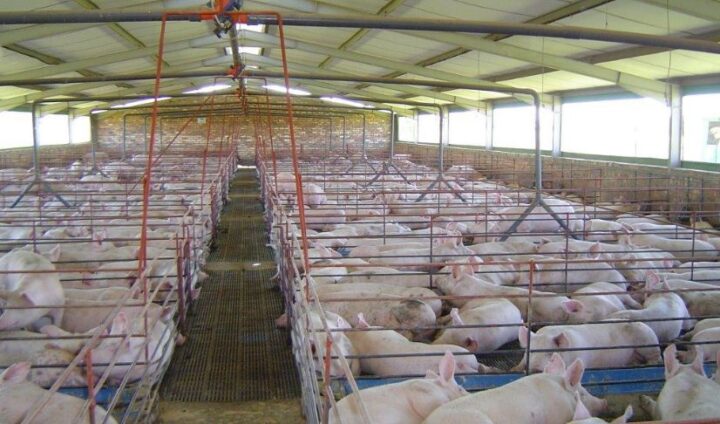Starting a successful farm business requires an entrepreneurial mindset. You must have the knowledge and understanding to identify a marketable product, develop a business plan, and lay out strategies for success. This can feel overwhelming for those new to the process, but with the right guidance and resources, you can understand the basics of launching your own farm business.
1. Understanding the Basics
Before beginning your venture, it’s important to educate yourself on some of the basics involved in starting a farm business. You should familiarize yourself with key terms used in agricultural production such as land use planning and zoning laws that define how a piece of property may be used; crop insurance and government programs such as loan guarantees; food safety programs required by customers; and financing options available to get started. Additionally, it’s important to understand what type of product is in demand amongst consumers so you can decide which crops or livestock to concentrate on producing.
It is also helpful to become aware of what state or local resources are available that can provide guidance regarding taxes, job titles, equipment needs, and labor laws. Finally, familiarizing yourself with trends within marketing channels and making sure your product meets consumer specifications could also prove useful for distinguishing your business from competitors.
2. Developing a Business Plan

Creating a plan gives you an opportunity to evaluate risks and rewards ahead of launching your venture. In addition to providing a roadmap for small-scale farming operations, launching with a well-defined business plan can make you more attractive to investors and grantors.
Writing a business plan involves researching both the market conditions that affect your farm and the specifics of your own operation. Your business should have realistic financial objectives that strive to generate profits while meeting competitive market needs in terms of cost, quality, and crop diversification. As part of this process, you must also develop a marketing strategy that outlines projected sales goals and how they will be achieved through advertising campaigns, direct sales, or web production stores.
3. Securing Financing
There are a variety of financing options available and the best option will depend on the individual needs of each business. Generally, loan programs are categorized into three sources: governmental, commercial, and equity-based investments.
Governmental loans include U.S. Department of Agriculture programs such as Farm Service Agency Operating Loans, which provide low-interest funds for startup expenses as well as guaranteed loans for land purchases; Rural Development Business & Industry Loans which can be used for expenses related to purchasing land or equipment; and Conservation Stewardship Program (CSP) grants that can fund conservation efforts on working agricultural lands or sustainable practices within an established farm business.
Commercial loans are those provided by banks and other private lenders that offer traditional lines of credit or term loan options with varying rates and terms dependent on program qualifications. Some businesses may also opt to pursue venture capital investors who can provide seed money with lengthy contracts attached; however, these may come with conditions such as relinquishing full control over the business operations in terms of decision-making power and ownership interest plus extensive reporting requirements.
4. Choosing the Right Location

One of the first considerations should be climate, as this will directly affect what crops can be successfully grown in a given area. Additionally, soil type and pH level are also important factors to take into account when deciding on a suitable crop or farming method. Along with these agronomic considerations, it is also important to factor in accessibility; farmers need to be able to quickly and easily get their goods to their customers or markets.
Additionally, it can be advantageous to select a location that is close enough to the market so that farmers are able to provide more personal service and build local relationships with other businesses or producers in their area. It is also necessary for farmers to assess all relevant legal restrictions before settling on a location for their farm business.
5. Acquiring the Necessary Equipment and Supplies
Once you have a business plan established, you can begin researching the purchasing options for the equipment and supplies necessary to keep your farm running. When it comes to establishing a successful farm operation, both commercial and hobby-level farmers need the right tools and materials.
In addition to purchasing standard tools like shovels, hoes, rakes, trowels, and pruning shears, you may also want to consider investing in larger pieces of equipment. This might include small tractors for mowing lawns or tilling fields, an irrigation system for when drought occurs, or heavier equipment for cultivating larger fields of crops. Furthermore, depending on the type of animals you’re working with (such as cows or sheep) there will be feeders and other related implements that need to be purchased. Check out Canarm for some top-notch equipment, if you are planning on keeping pigs.
6. Establishing the Right Legal Structure

While sole proprietorships are the most common form of business formation, other organizational designs—such as limited liability companies, partnerships, and corporations—also exist. Each structure has legal and financial implications that should be considered before making a final decision.
Organizing as a sole proprietorship is typically the least expensive and most straightforward approach for small farming operations. It may also be beneficial to consult with outside advisors such as lawyers or accountants to gain additional insight into entity selection choices.
When forming a business entity such as a limited liability company (LLC) or corporation, prospective entrepreneurs must formally register with the state where their primary business activities will occur. This process typically involves filing articles of organization or incorporation and paying related fees. Then, once registered, owners must ensure that all applicable tax forms are completed accurately on time every year for continued compliance with state requirements such as annual report filings and taxes on profits generated from selling goods or services under its name.
Additionally, depending upon the organizational structure chosen by owners, some entities may require additional official documentation such as partnership agreements. These agreements outline each partner’s monetary contributions (capital) and authority within the business hierarchy (management).
7. Understanding the Regulatory Environment
It is important to understand the regulatory environment in which you will be operating your farm business. Regulations related to running a farm can come from various government levels, including federal, state/provincial, and local. Areas of regulation can include land use, zoning, food safety, animal welfare, and environmental protection. It is essential for new farm businesses to review existing regulations in the area where they plan to set up and operate their farm business.
Farmers should also take into account any permits or licenses needed prior to starting a business. Many farmers are required by law to have specialized licenses for activities such as handling chemicals or selling products for human consumption. A local government may require special forms in order to register as a legitimate business entity in the local jurisdiction as well. Additionally, farmers may need to research regulations around marketing their product (e.g., labeling requirements) before they start producing it on an ongoing basis.
8. Building a Network of Support

Having a network of support to draw on can be incredibly helpful during the early days of starting a farm business. From seeking advice from fellow farmers to having mentors who have experience in the industry, finding knowledgeable individuals who can help guide you will give you an edge in the startup stage.
As you build your network of support, try to identify a variety of individuals with various skill sets and backgrounds. Connecting with experts in agricultural sciences, business management, and law can offer invaluable advice for tackling unique challenges as your farm business grows. Additionally, taking part in agricultural organizations such as workshops and conferences is an excellent way to stay up-to-date on changes to policies or regulations that may affect your operations.
Conclusion
Starting a farm is a big commitment, and even bigger when you’re starting from scratch. The process of a startup can be daunting, but with the right tips and advice, it can be easier than you think. In this article, we round up some of the most important things new farm businesses need to know in order to successfully navigate the startup stage. From establishing your business goals to building a strong team, everything is covered here. So if you’re ready to take on the challenge of starting your own farm, read on for our top tips!




